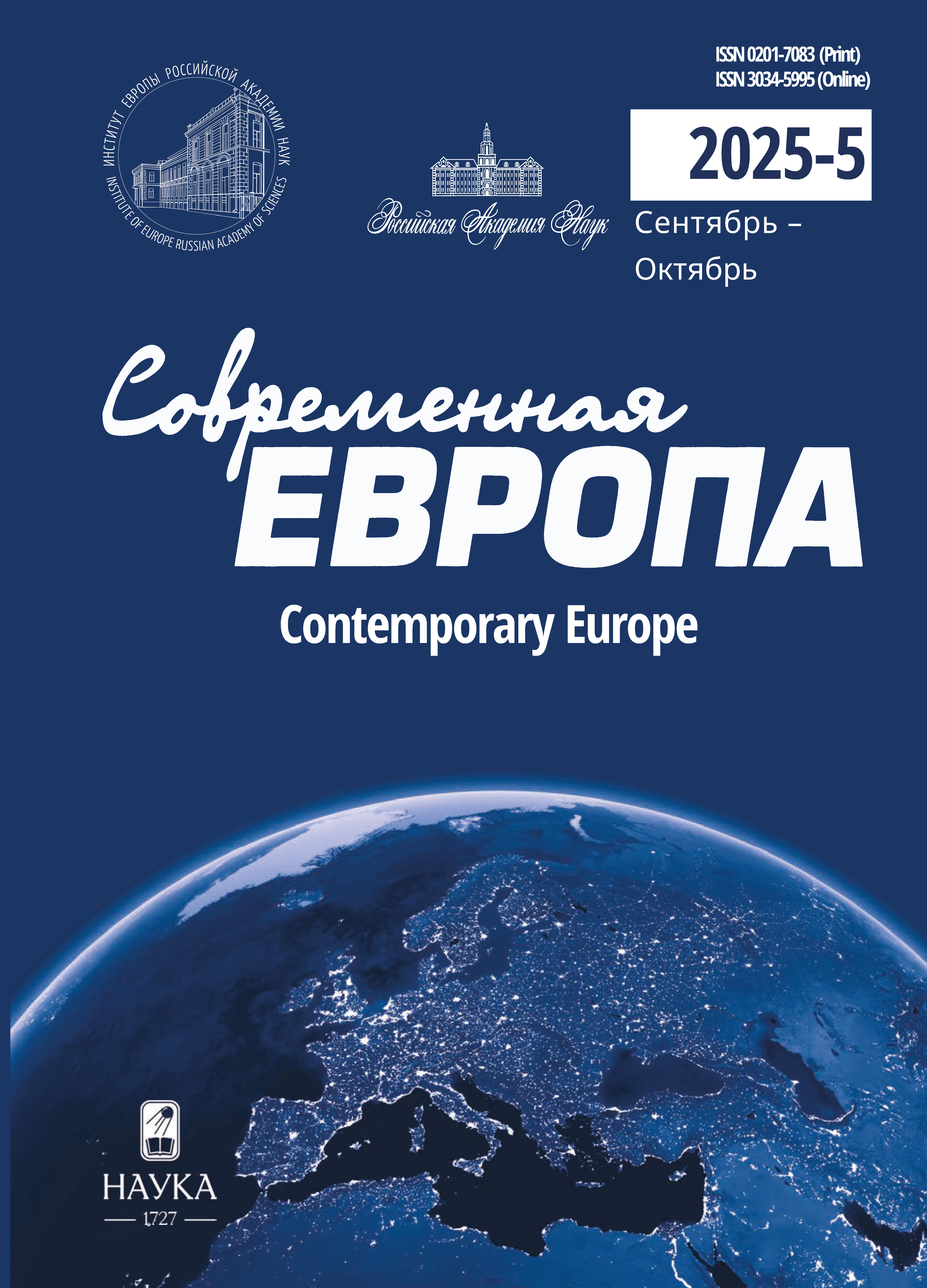Italy in the Rome – Paris – Berlin Triangle
- Authors: Maslova E.A.1,2, Shebalina E.O.1
-
Affiliations:
- MGIMO University
- Institute of Europe Russian Academy of Sciences
- Issue: No 2 (116) (2023)
- Pages: 5-18
- Section: Articles
- URL: https://rjsvd.com/0201-7083/article/view/652252
- DOI: https://doi.org/10.31857/S0201708323020018
- EDN: https://elibrary.ru/OTTGPJ
- ID: 652252
Cite item
Abstract
In November 2021 Italy and France signed the Quirinal Treaty for a Strengthened Bilateral Cooperation. The document suggested the emergence of the Rome - Paris - Berlin triangle following the Aachen Treaty concluded in 2019 between France and Germany. The Quirinal Treaty has a high significance for Italy. Firstly, it secures its place among the leaders of the EU. Secondly, the Treaty strengthens Rome's credibility, portraying Italy as a trustworthy country. Thirdly, the agreement lays the basis for regular bilateral interaction. In the absence of hard commitments fulfillment of the Treaty depends on domestic affairs and international agenda of the political leaders. The volatility of Italian politics may affect the integrity of the alliance. There has been a dramatic change of attitude to the Quirinal Treaty under the premiership of G. Meloni, which has a direct impact on its implementation. At the same time the Quirinal Treaty fails to resolve some serious differences between the two countries, including the Libyan case and the migration issue. Moreover, this bilateral agreement threatens to place Rome in a subordinate position. In the current political configuration France is at an advantage in light of concluded treaties with both Italy and Germany.
Keywords
About the authors
Elena Aleksandrovna Maslova
MGIMO University;Institute of Europe Russian Academy of Sciences
Email: e.maslova@inno.mgimo.ru
Moscow, Russia;Moscow, Russia
Ekaterina Olegovna Shebalina
MGIMO University
Email: shebalina.e.o@my.mgimo.ru
Moscow, Russia
References
- Алексеенкова Е.С., Чихачев А.Ю. (2022) Квиринальский трактат - двусторонний договор о будущем ЕС? Современная Европа. № 3. С. 33-48. doi: 10.31857/S0201708322030032.
- Зуева К.П., Тимофеев П.П. (2022) Президентство Э. Макрона во Франции: итоги первого пятилетия (2017-2022). Мировая экономика и международные отношения. Т. 66. № 10. С. 45-55. doi: 10.20542/0131-2227-2022-66-10-45-55.
- Истомин И.А. (2018) Логика поведения государств в международной политике. МГИМО МИД России, Москва. 296 с.
- Истомин И.А., Силаев Н.Ю., Сушенцов А.А. (ред.) (2021) Стратегии союзничества в современном мире: военно-дипломатический инструментарий международно-политической конкуренции. МГИМО МИД России, Москва, Россия. 371 с.
- Маслова Е.А. (2022) Парламентские выборы в Италии 2022: лидеры и идеи. Научно-аналитический вестник Института Европы РАН. № 5. С. 55-62. doi: 10.15211/vestnikieran520225562.
- Мельникова Ю.Ю. (2021) На пути к стратегической автономии ЕС: промежуточные итоги. Современная Европа. № 7. С. 115-124. doi: 10.15211/soveurope72021115124.
- Соколов А., Пименова Е., Давыдов А. (2021) Выбор в Бундестаг 2021. Путеводитель. МГИМО МИД России, Москва. 32 с.
- Шибкова М.О. (2021) Альянсы Ad hoc как доминанта внешнеполитического инструментария Италии. Международные процессы. № 1 (64). С. 139-154. doi: 10.17994/IT.2021.19.1.64.4.
- Baldi S. (ed.) (2014) Un ricordo di Pietro Quaroni. Ministero degli Affari Esteri e della Cooperazione Internazionale, Roma, Italia. 102 p.
- DISPOC/LAPS, IAI (2022) Gli Italiani e la Politica Estera 2022. Ottobre. Istituto Affari Internazionali, Roma, Italia. 23 p.
- ISPI (2021) Gli italiani e la politica internazionale. Sondaggio ISPI. URL: https://www.ispionline.it/it/pubblicazione/gli-italiani-e-la-politica-internazionale-32705. (accessed: 21.01.2023)
Supplementary files











